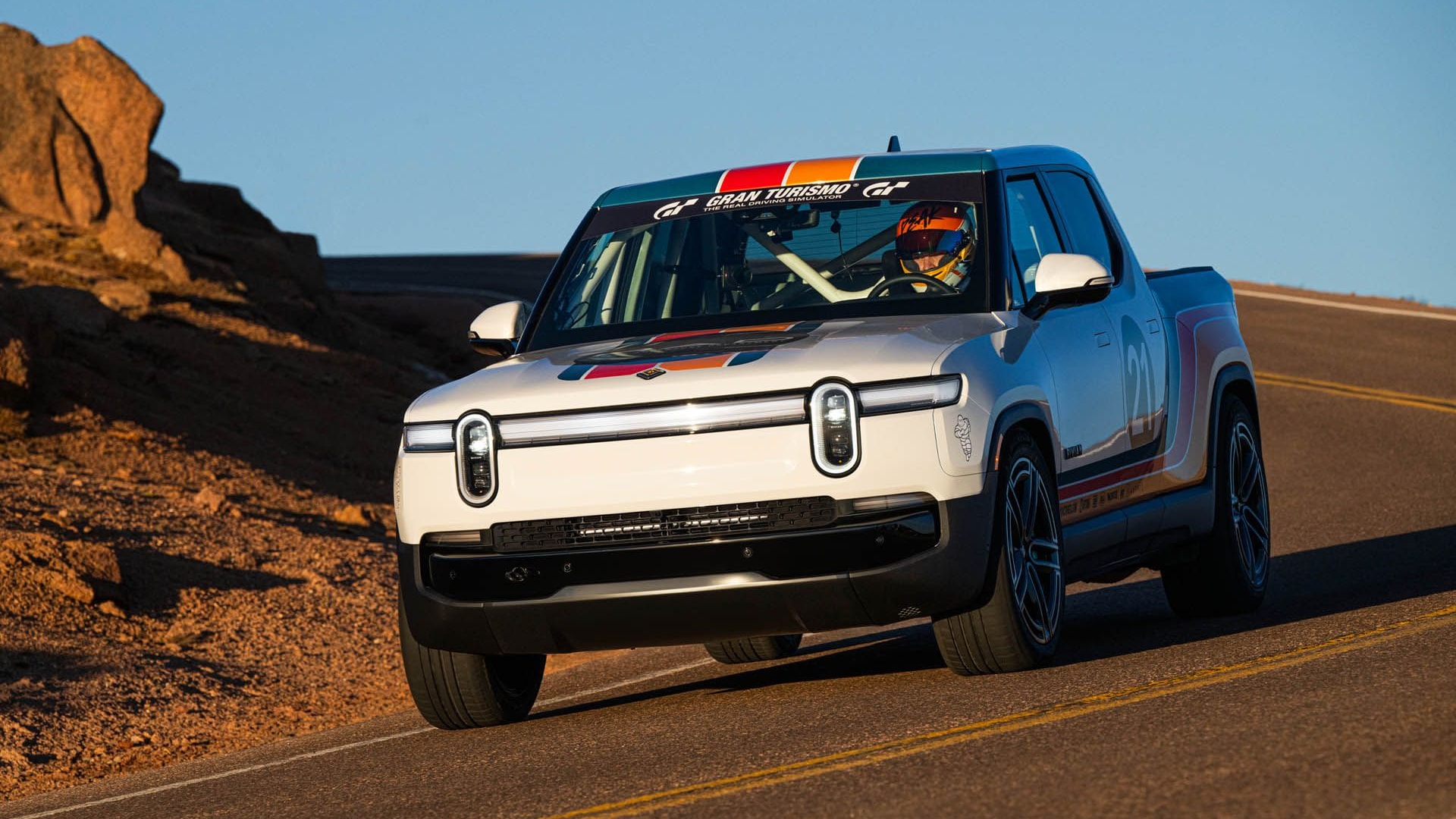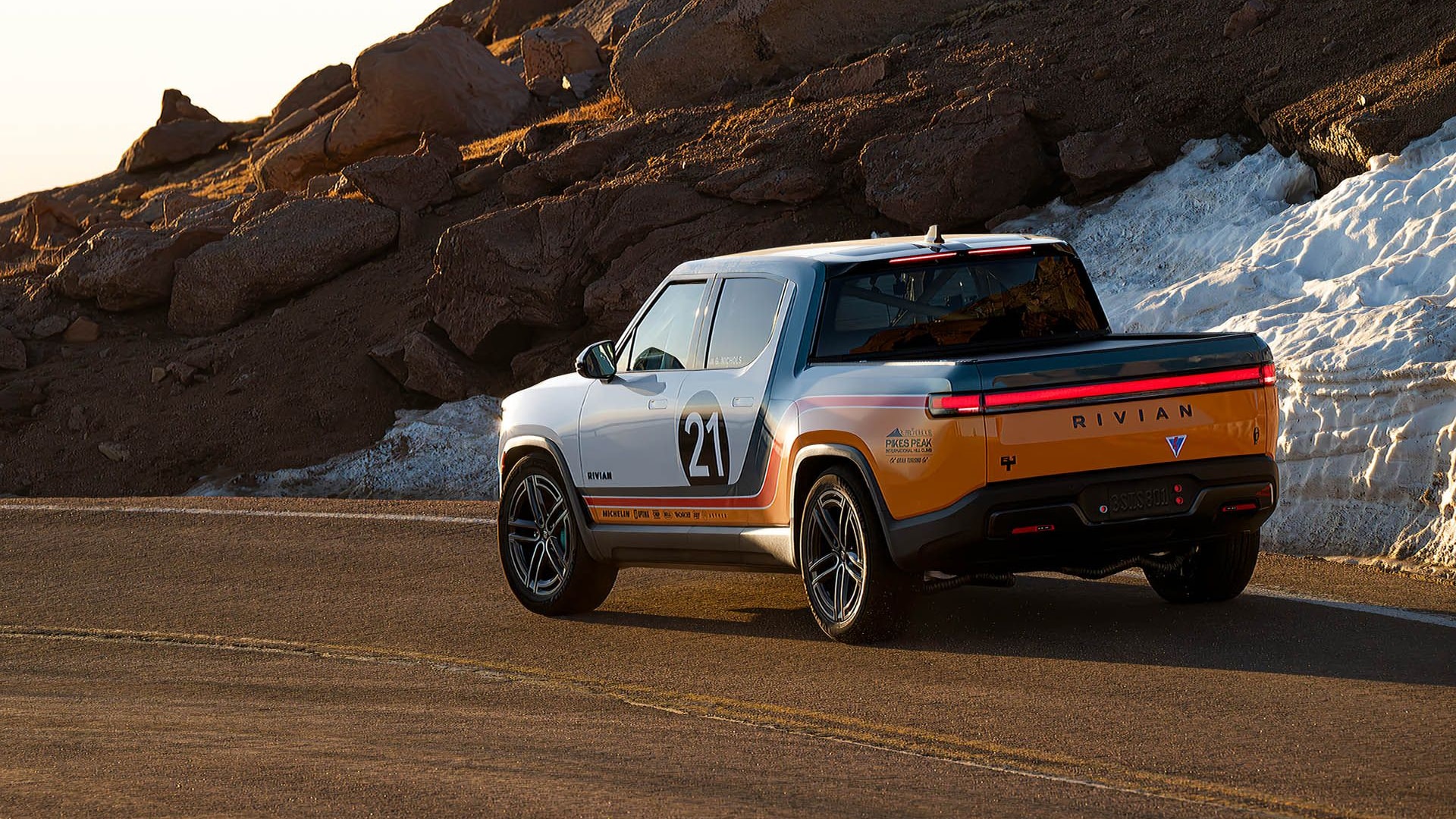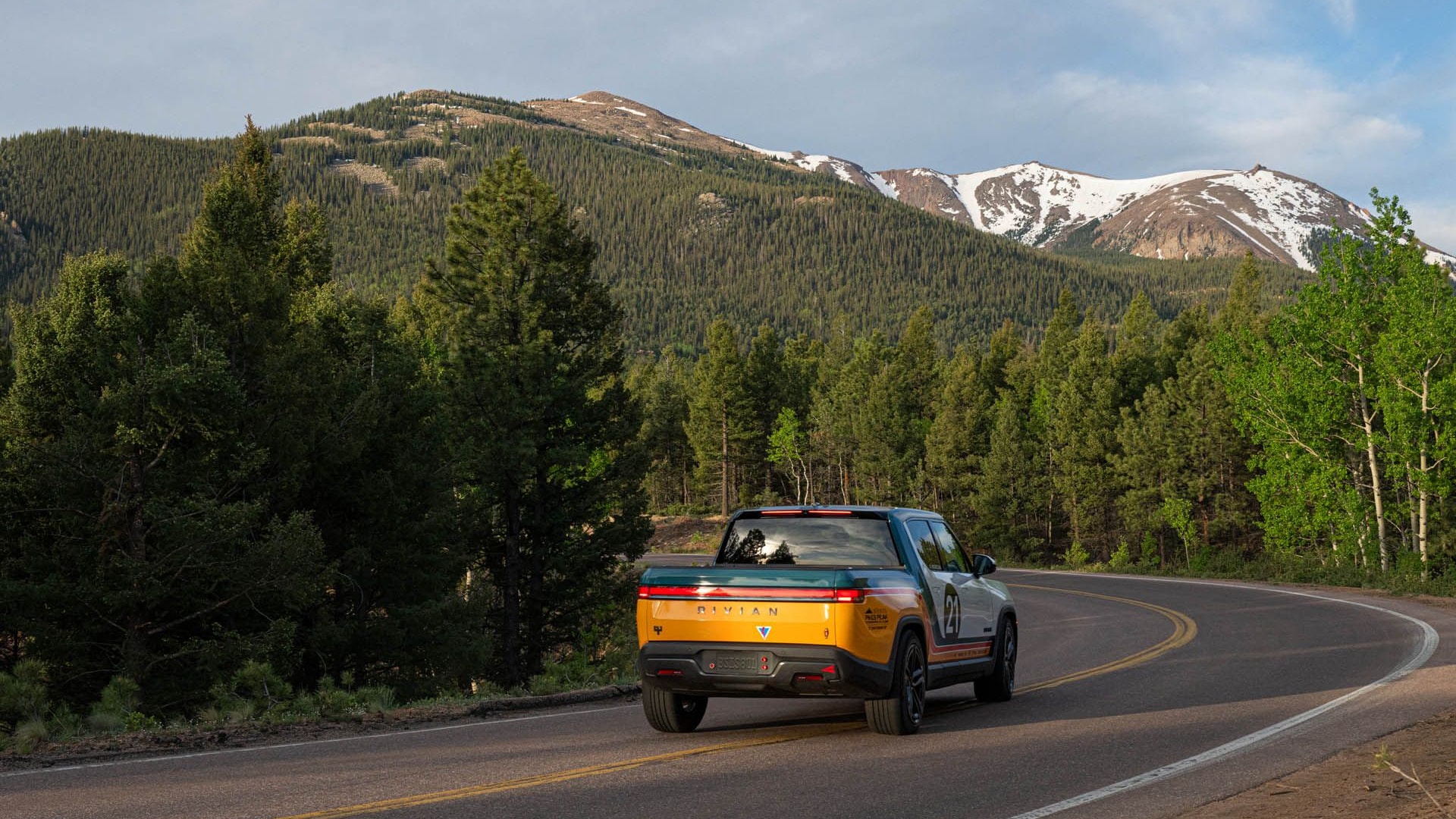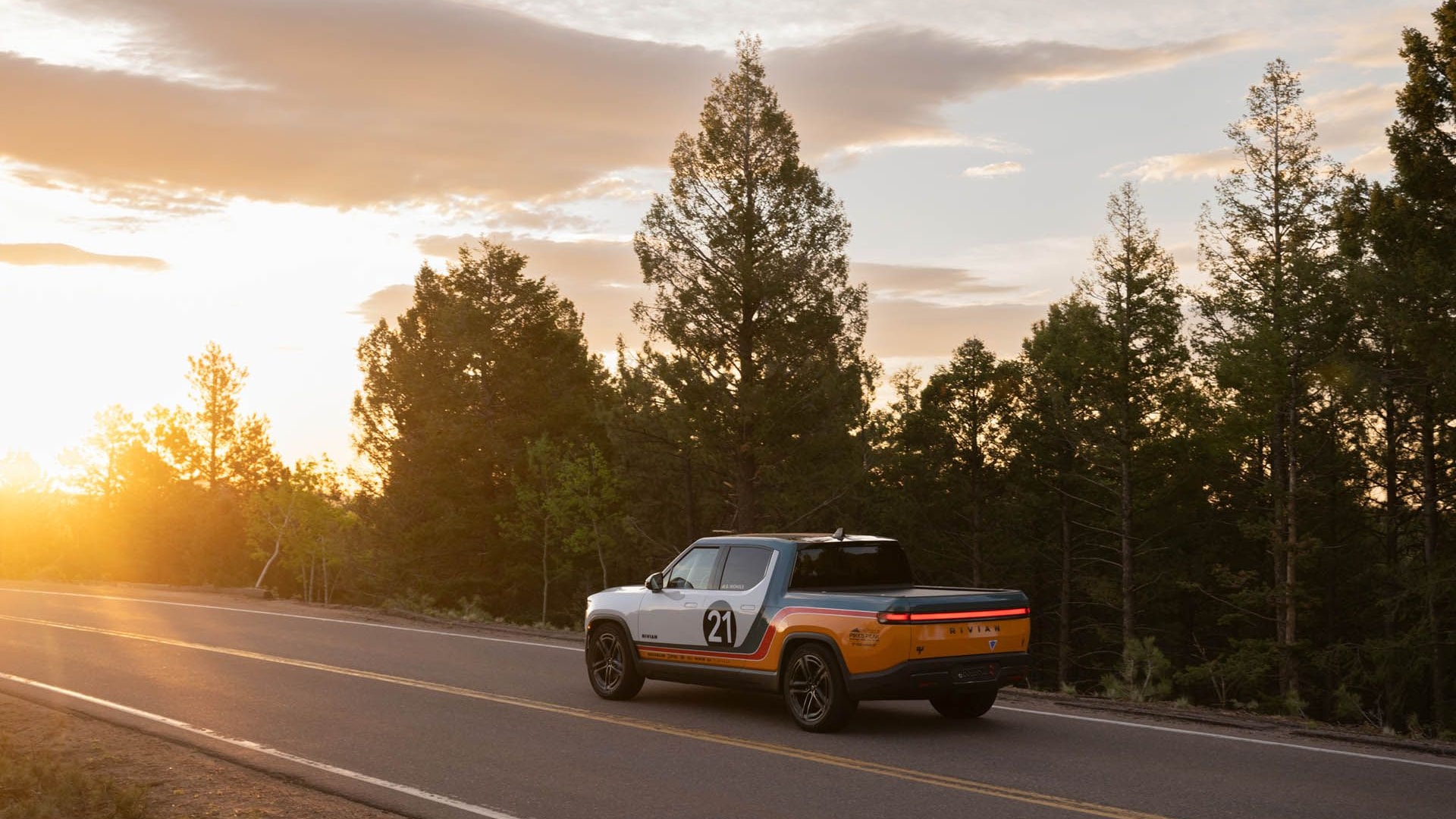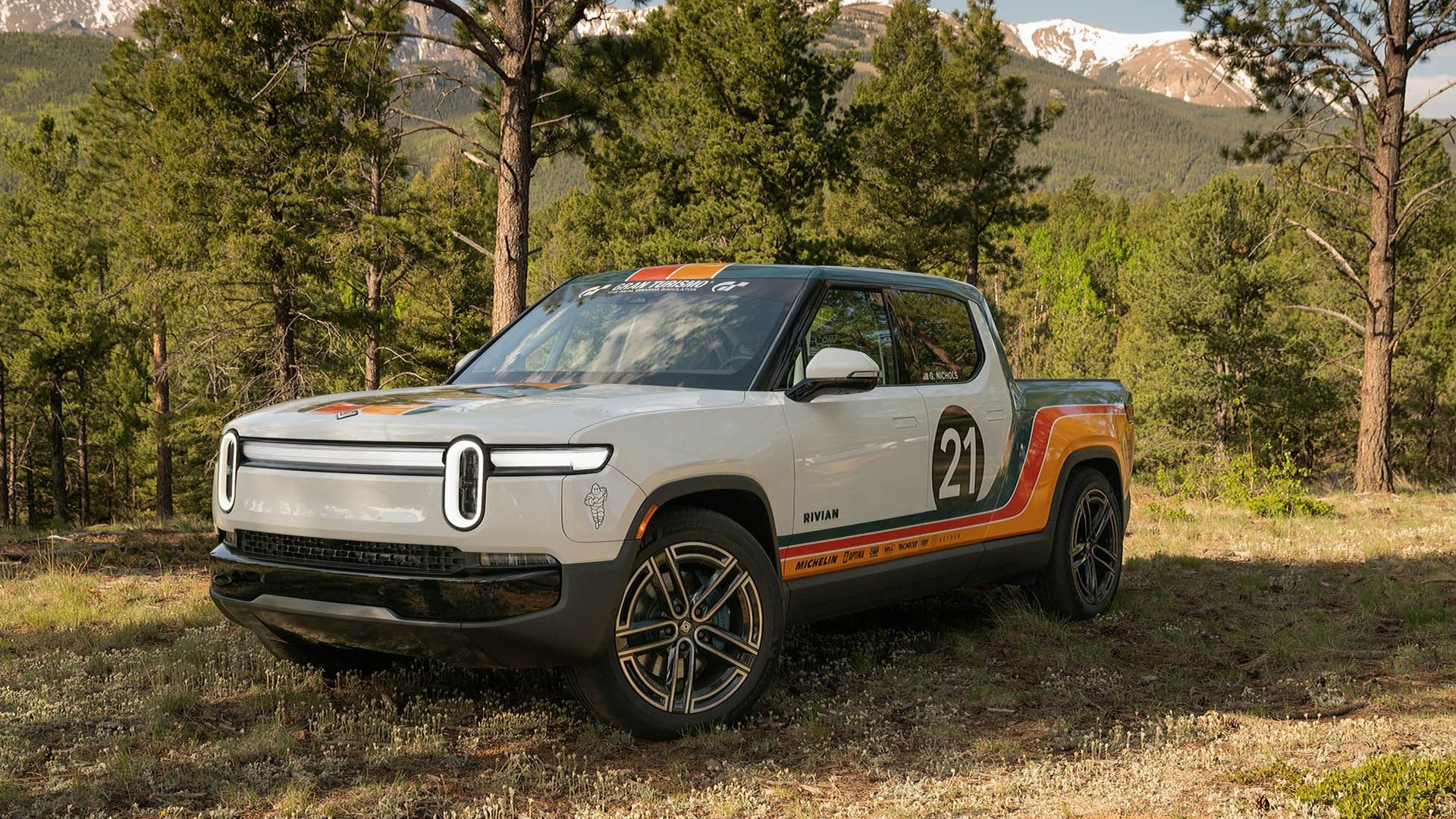- Rivian will run the R1T at the 2024 Pikes Peak International Hill Climb
- The R1T will be the heavily updated 2025 model with four motors and 1,025 hp
- Rivian set a record at last year's hill climb and
The 102nd running of the Pikes Peak International Hill Climb gets underway in Colorado this Sunday, and the updated 2025 Rivian R1T electric truck will be among the field of contenders.
It won't be the only electric truck taking on Pikes Peak this year, as Ford has revealed a time-attack special based on its F-150 Lightning, which will also make a run.
While the Ford packs more than 1,400 hp and a wild aerodynamic package that helps deliver more than 6,000 pounds of downforce, the Rivian can boast being the only production electric truck taking part. Only some minor modifications to meet safety requirements will be made, including the installation of a roll cage.
Rivian already set a record time of 11:23.983 for a production truck, regardless of powertrain, at last year's Pikes Peak, using an R1T with an output of 835 hp. This year, Rivian will use the updated 2025 R1T in Quad-Motor form, which packs 1,025 hp, or enough for 0-60 mph acceleration in less than 2.5 seconds using launch control and a top speed of capped at 130 mph.

2025 Rivian R1T Quad-Motor at Pikes Peak
Behind the wheel will be Rivian Senior Performance Test Engineer Gardner Nichols, who set the time last year.
Rivian has also revealed that its R1T will wear a custom livery featuring some of the company's signature colors, and racing number 21, the same number Nichols raced under last year.
Unlike their internal-combustion counterparts, electric vehicles are unaffected by the thin air experienced during climbs of Pikes Peak, at least as far as their powertrains are concerned. The start lies at 9,390 feet and the finish line at 14,110 feet. An EV even holds the outright record for the climb. A blistering time of 7:57.148 was set in 2018 by Volkswagen's ID.R time-attack special.
There are challenges for EVs, though. The rapid climb, which features an average 7.2% vertical grade, draws a lot of energy in a very short period. That puts a lot of pressure on a battery's ability to release sufficient energy while not overheating.
